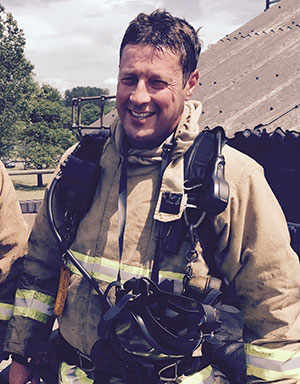Maintenance
17.—(1) Where necessary in order to safeguard the safety of relevant persons the responsible person must ensure that the premises and any facilities, equipment and devices provided in respect of the premises under this Order or, subject to paragraph (6), under any other enactment, including any enactment repealed or revoked by this Order, are subject to a suitable system of maintenance and are maintained in an efficient state, in efficient working order and in good repair.
(2) Where the premises form part of a building, the responsible person may make arrangements with the occupier of any other premises forming part of the building for the purpose of ensuring that the requirements of paragraph (1) are met.
(3) Paragraph (2) applies even if the other premises are not premises to which this Order applies.
(4) The occupier of the other premises must co-operate with the responsible person for the purposes of paragraph (2).
(5) Where the occupier of the other premises is not also the owner of those premises, the references to the occupier in paragraphs (2) and (4) are to be taken to be references to both the occupier and the owner.
(6) Paragraph (1) only applies to facilities, equipment and devices provided under other enactments where they are provided in connection with general fire precautions
What the Enforcement Guidance says:
The responsible person must ensure, where necessary in order to safeguard the safety
of relevant persons, that the fire precautions are maintained in good working order
(see also article 38, about protection of fire-fighters). This includes any facilities
which have been provided under Building Regulations, the Housing Act 2004 or other
legislation such as local Acts; and including any enactment repealed or revoked by
the Order. Risk assessments, as required by article 9, should include references to
maintenance. Enforcing authorities must consider the suitability and sufficiency of any risk assessment that does not address the matter of maintenance where there is the possibility of persons other than the employer/occupier being capable of omissions affecting and negating the effectiveness of the fire precautions. It is suggested that in such instances enforcing authorities could reasonably expect that any contract or
tenancy agreement would contain such clauses that would enable the responsible person to show that acts or omissions which cause the effectiveness of fire precautions to be negated, and which place relevant persons at risk, may result in criminal liability.
The responsible person(s) for parts of the premises to which the Order applies may
make arrangements with the occupier of parts to which the Order does not apply
(e.g. domestic accommodation) for the purposes of ensuring the maintenance
requirements of the Order are met. This applies to HMOs and purpose-built flats.
Occupiers of private domestic premises in such buildings are required to co-operate
with the responsible person where the latter needs to maintain a common fire
precaution. Although no direct offence is associated with a failure by the occupier of
private domestic premises to co-operate with a landlord etc, any contract/agreement
(whether in terms of a lease, tenancy or licence agreement) should allow access to the
responsible person to enable him to maintain any fire safety provisions extending from
the common parts to the domestic premises.
Enforcing authorities are expected to enforce the duties and in doing so seek
appropriate evidence that where fire precautions extend beyond parts of premises to
which the Order applies, arrangements are in place for those common precautions to
be maintained.
Enforcing authorities are expected to use their professional judgement in evaluating
the maintenance of any equipment and devices provided in accordance with the risk
assessment to protect all relevant persons in and around the premises from the dangers
of fire, eg fire extinguishers, fire suppression systems, alarm systems and emergency
lighting. Enforcing authorities should be aware that there may be more than one
responsible person who has duties to maintain premises and any facilities, equipment
and devices provided in respect of the premises covered under this Order.


